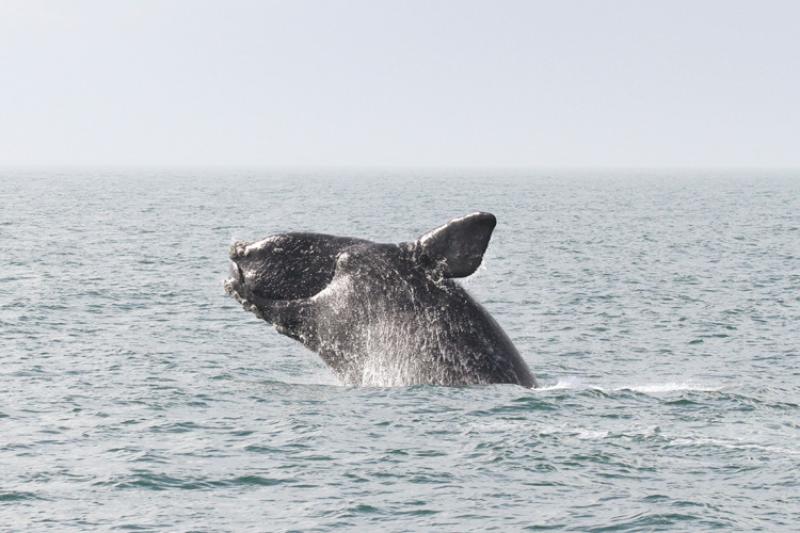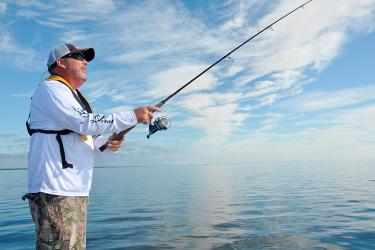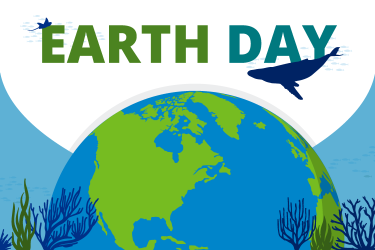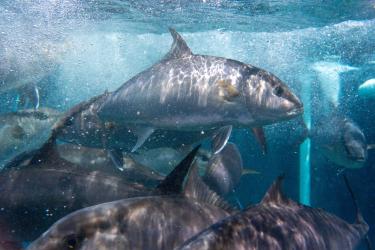World Whale Day is held every year on the third Sunday in February to inspire us with the majesty and beauty of the largest creatures in our oceans. It reminds us that they need our help to overcome the challenges they face around the globe. Join us as we celebrate Whale Week February 15–19 leading up to World Whale Day on February 21, 2021.
Whales are cetaceans, a group of animals that also includes dolphins and porpoises. Cetaceans are marine mammals characterized by their fully aquatic lifestyle and a streamlined, hydrodynamic body with tail flukes. NOAA Fisheries works to ensure the conservation and protection of cetaceans. All cetaceans are protected under the Marine Mammal Protection Act, and some are also protected under the Endangered Species Act.
The North Atlantic right whale is one of the world’s most endangered species, with less than 400 individuals remaining. They are also part of our Species in the Spotlight initiative to highlight and save species that are among the most at risk of extinction in the near future. Unfortunately, this weekend we learned about another North Atlantic right whale calf death, bringing the total to two dead calves this season. The male calf washed up on the shores of Florida on Saturday February 13, 2021. The animal is the calf of a 19-year old female named Infinity (#3230); mother and calf were first sighted on January 17, 2021, off Amelia Island, Florida. In collaboration with our partners, we are organizing a necropsy (animal autopsy) of the calf. We will conduct a detailed evaluation of the cause of death, evaluate the calf’s overall health prior to death, and generally learn more about this animal.
On the East Coast, 16 North Atlantic right whale calves have been documented so far this calving season (14 currently alive and two dead). This is the highest number since 2016. Despite the incident this weekend, the new calves seen this season are a hopeful sign for the species but as we have seen they are very vulnerable to human impacts.
The strong calf count is encouraging, but unfortunately right whales have been experiencing an ongoing Unusual Mortality Event since 2017. The UME is primarily attributed to entanglements in fishing gear and vessel collisions, and has impacted more than 10 percent of the population.
To help protect these whales, we encourage all mariners to slow down and remain alert while traveling through areas where right whales are found. The protection of these animals from vessel strikes is in the hands of all mariners on the water.
From the Gulf of Mexico, we have the exciting discovery of a species of baleen whale, Rice’s whale, formerly known as the Gulf of Mexico Bryde's whale. Unfortunately, this newly described species is already critically endangered. As the Gulf of Mexico Bryde’s whale subspecies, it was listed as Endangered under the Endangered Species Act in 2019. The population is thought to contain fewer than 100 individuals.
On the West Coast there are continuing threats to many whale species, including vessel traffic and vessel strikes impacting Southern resident killer whales. Another Unusual Mortality Event was declared in 2019 due to the increased strandings of gray whales. Researchers investigating the UME have noted that some animals are in poor body condition.
NOAA Fisheries continues work with state and federal agencies to tackle major issues facing several species of whales including:
-
Lack of prey
-
Polluted water
-
Entanglements in fishing gear
-
Vessel traffic and collisions
-
Ocean noise
In September we were excited by the cross-border chase to find a Southern Resident killer whale radio tag. The tag contained vital data on the overnight behavior of these endangered species. Collaborations with our partners across the United States and in other countries allows us to advance protected resources science.
We continue to make conservation progress, but there is still much work to be done to protect whales. Our marine mammal and endangered species conservation teams are committed to finding long-term solutions to recover and protect whales while supporting a thriving blue economy. Join us during Whale Week to learn more about these efforts and the ways you can help support whale conservation.
Donna Wieting
Director for NOAA Fisheries Office of Protected Resources




